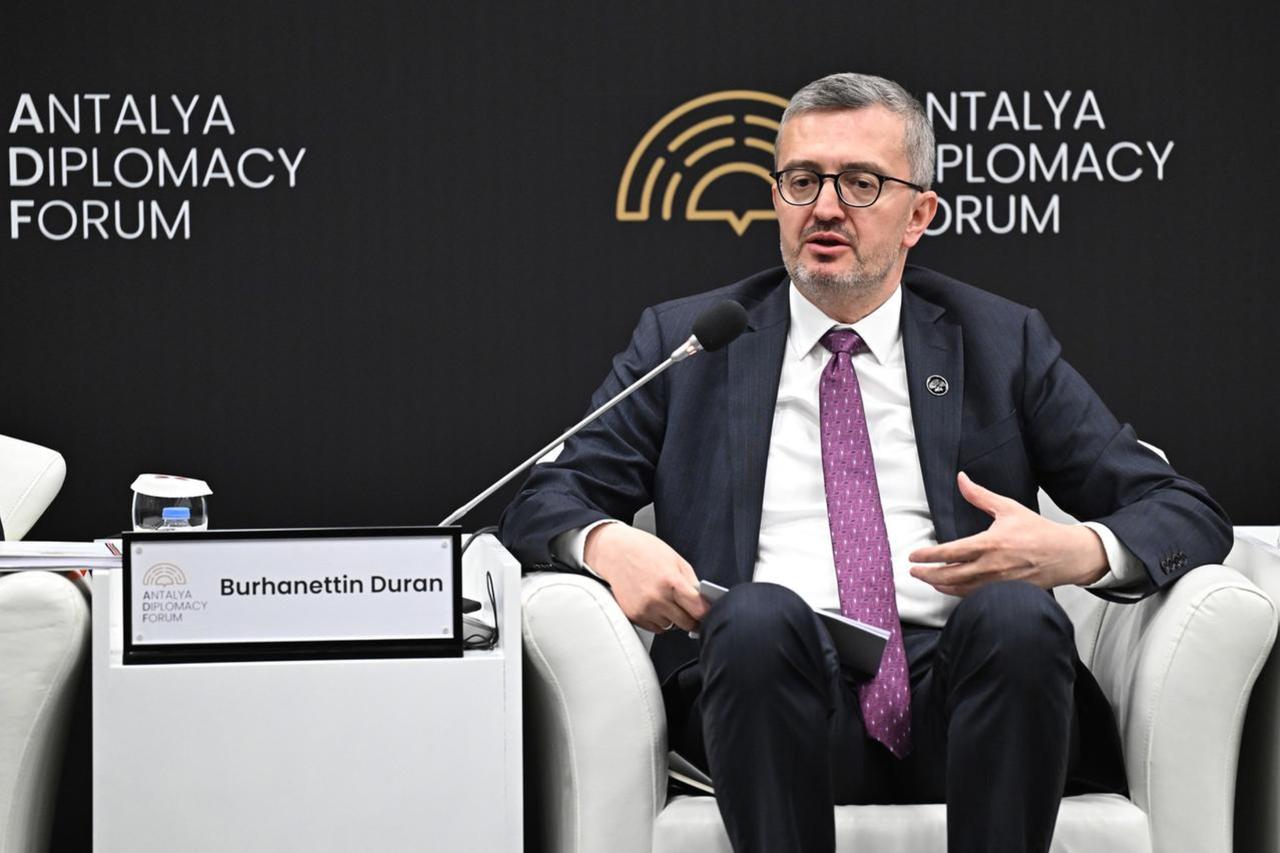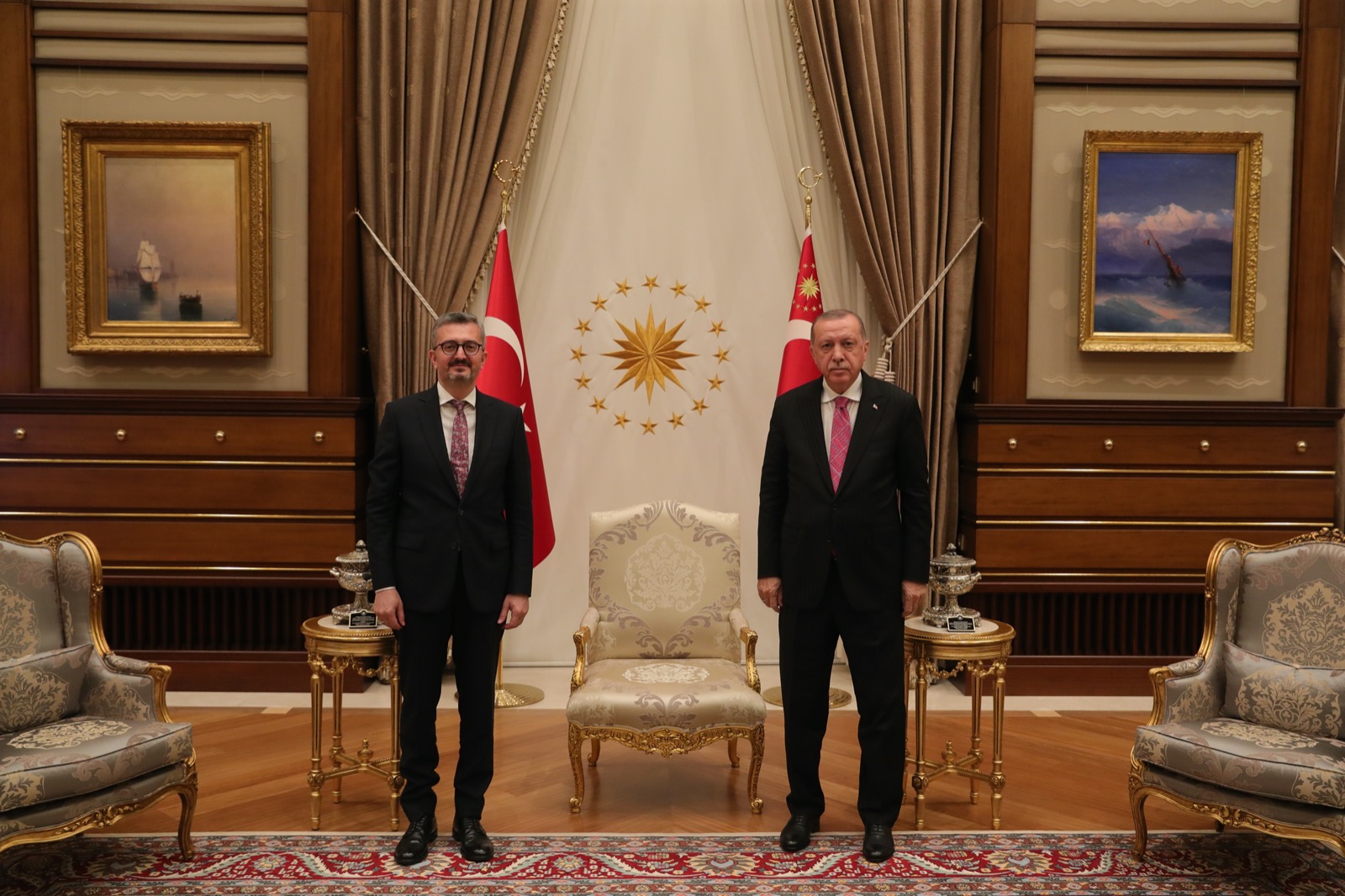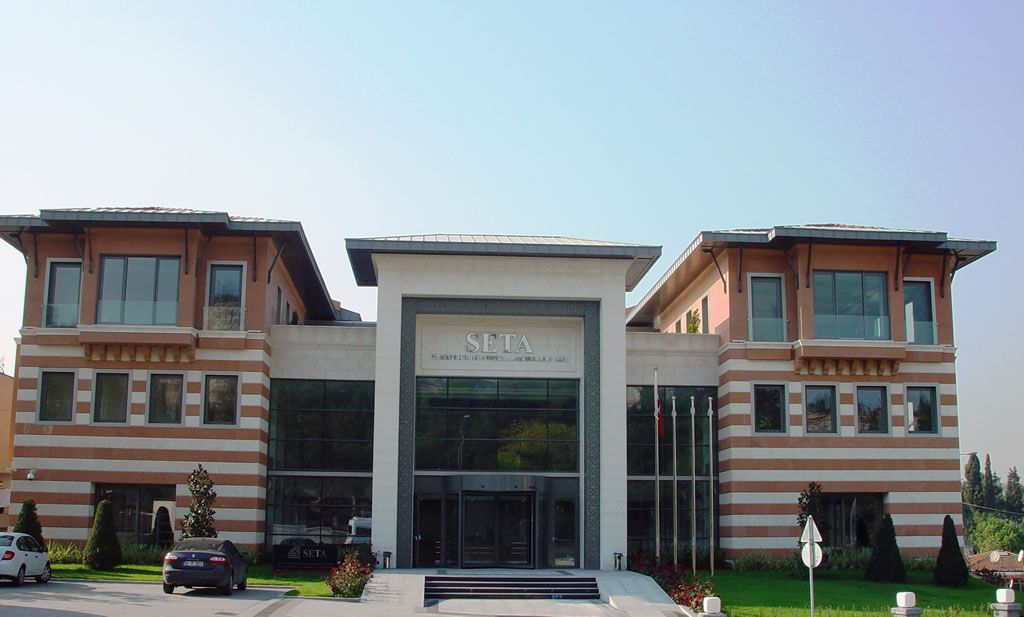
On July 9 Wednesday, in a notable reshuffle within Türkiye’s executive structure, President Recep Tayyip Erdogan has appointed Deputy Foreign Minister Prof. Dr. Burhanettin Duran as the new head of the Directorate of Communications, replacing Fahrettin Altun.
The appointment ends the nearly seven-year tenure of Fahrettin Altun, who has now been assigned to lead the Human Rights and Equality Institution of Türkiye (TIHEK).
While the change was formalized via the Official Gazette, it places one of Erdogan’s most trusted ideological architects at the helm of the country’s information apparatus.
Having spent two decades navigating the space between universities, think tank sector, and high-level advisory roles, Duran is widely seen as the architect of a model in which think tanks became central instruments of policy making and narrative control in the country.
The appointment raises a central question in Ankara's political circles and among foreign observers: Who is Burhanettin Duran, and what does his rise say about the evolving nature of Türkiye’s political messaging and power consolidation?

Duran was born in 1971 in the industrial city of Adapazarı in northwestern Türkiye. A graduate of the local Imam-Hatip high school system, a network of religious vocational schools that produced many figures in Türkiye’s Islamist movement, he co-founded the Sakarya Imam-Hatip Alumni Association (SIMDER) in 1991, early evidence of his enduring engagement with Türkiye’s conservative-religious educational elite.
He studied political science and international relations at Boğaziçi University, one of the country’s most secular and institutionalized universities, and later earned his master’s and PhD at Bilkent University, a leading private institution known for its Western-oriented curriculum.
His graduate work focused on secularism in the political thought of Türkiye’s post-coup leaders and later shifted to the intellectual genealogy of Turkish Islamism. His PhD dissertation, completed in 2000, explored the transformation of Islamist political thought in Türkiye between 1908 and 1960, using the work of influential Islamist poet and ideologue Necip Fazıl Kısakürek as a key analytical lens.
These formative academic interests laid the foundation for Duran’s later political and institutional work, which has consistently sought to merge Turkish national identity with a reinterpreted conservative-Islamist worldview.
Duran’s academic career began in the early 1990s at Sakarya University, where he served first as a research assistant and later as a faculty member in public administration and international relations. He earned his associate professorship in 2006 and chaired the university’s international relations department from 2006 to 2009. The university nowadays serves as a leading model in Middle Eastern studies in the country.
In 2009, he moved to Istanbul Sehir University, where he chaired the Political Science and International Relations Department. His time at Sehir University ended abruptly in 2015, when he and several colleagues resigned in protest.
Their open letter accused the university of straying from its founding values after the appointment of a rector alleged to have ties with the FETO terror group, and a history of defending the headscarf ban.
His short academic posting abroad, including as a visiting scholar at George Mason University in the US, added to his global profile, but his real influence would come through domestic institutions.

Duran’s shift from academia to the think tank world in 2013 marked a turning point. That year, he was named founding coordinator of the Istanbul branch of the SETA Foundation, the biggest think tank of Türkiye which is closely aligned with conservative strategy and policy priorities.
In 2014, he became SETA’s general coordinator in Ankara, a position he held for nearly a decade. Under his leadership, the foundation expanded into a powerful policy network that bridged government, academia, and media.
While critics accused the foundation of operating as a pro-government outlet and undermining academic autonomy, Duran’s supporters argue that under his leadership, the think tank helped institutionalize decision-making processes in both domestic and foreign policy.
Duran’s formal entry into executive governance came in 2018 when he was appointed to the Presidential Security and Foreign Policy Board. He played a behind-the-scenes role in articulating the Erdogan government’s strategic worldview, one that blends transactional diplomacy, mixed soft and hard power projection in the region, and a reassertion of Türkiye’s identity on the global stage.
In May 2024, he was appointed Deputy Foreign Minister, moving from the intellectual periphery to the bureaucratic core. That position, although short-lived, placed him in direct contact with Ankara’s most sensitive diplomatic files at a time when Türkiye was navigating simultaneous tensions and alignments across NATO, the Gulf, Russia, and the EU.
Burhanettin Duran’s appointment reflects a continuation rather than a rupture in the institutional trajectory of Türkiye’s young Directorate of Communications. Like his predecessor Fahrettin Altun, Duran comes from an academic background shaped by political science, media, and foreign policy scholarship. Both figures rose through the ranks of pro-government think tanks and university faculties before being entrusted with high-level public responsibilities.
Altun, who played a central role in establishing the Directorate as a formalized institution in 2018, helped shape its structure and strategic functions over seven years. His departure is not being interpreted as a political break, but rather as a calculated transition, potentially handing over the office to one of the few figures seen as capable of preserving and advancing the institutional identity he helped build.